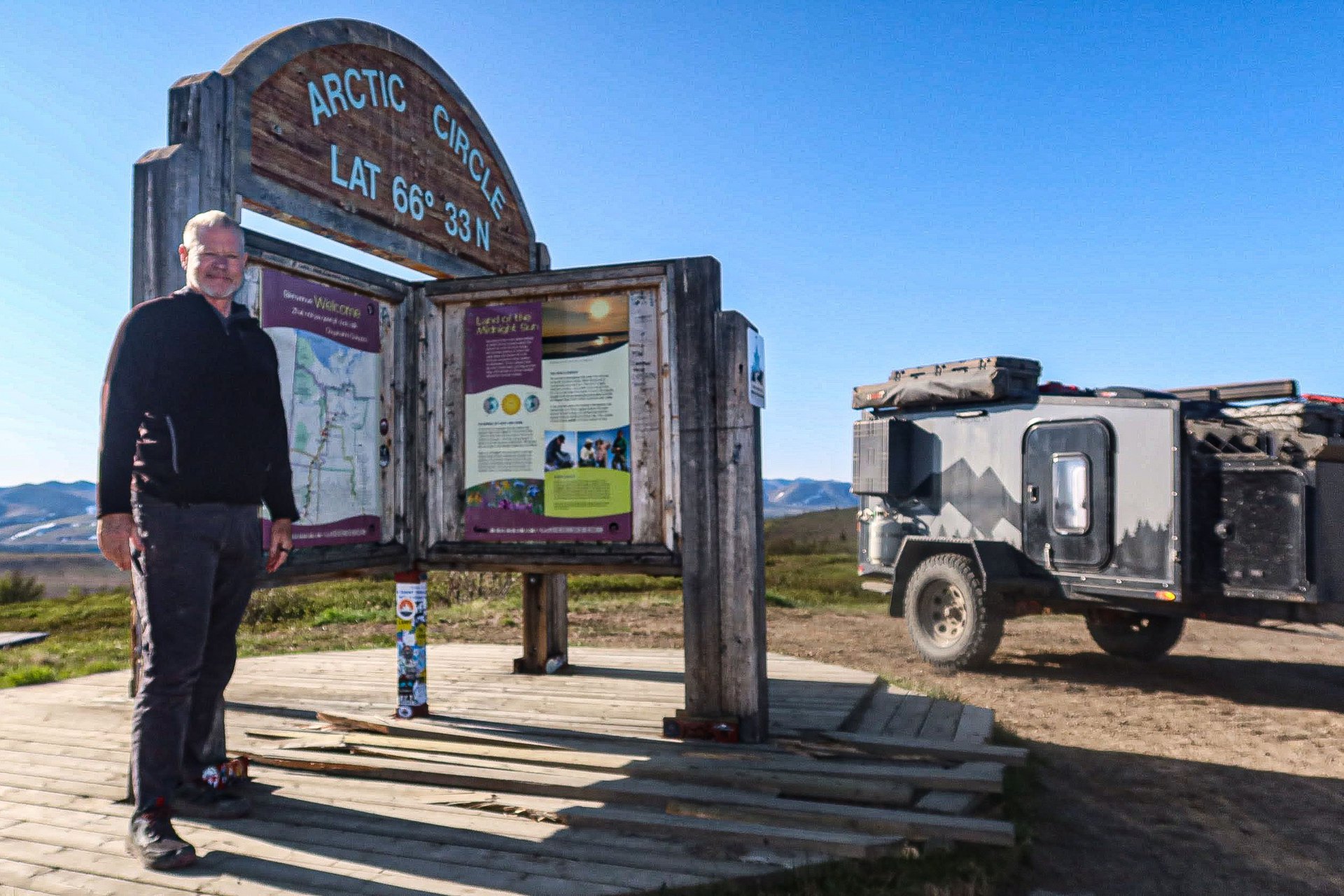
OWNER ADVENTURE: THE XT GOES TO THE ARCTIC OCEAN
XT Owner Arthur is an experienced backpacker that wanted to explore the Great North of Canada and Alaska. His objective: Go as far north on a road as you can go. We spoke with him about his planning and preparation for the trip and experience out on the road. Take a read!
Boreas Campers: What were you preparing for and how did you prep for it?
Arthur: I wanted to reach the Arctic Ocean, which is 300 miles past the Arctic Circle, and the furthest north you can go in Alaska on a road. I started in Colorado in May and the trip lasted 3 months. The entire journey was 12,000 miles, and 3,000 of those were gravel.
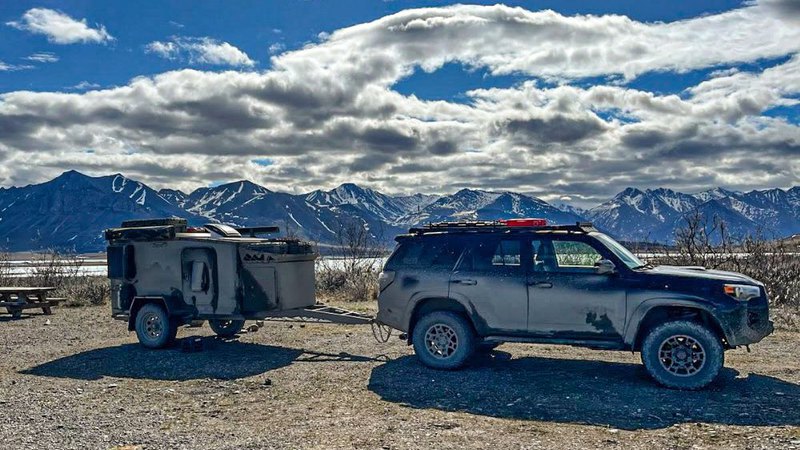
I did not have a schedule, timeline or reservations. I wanted to use my 4Runner and XT to reach out of the way places, and take short day hikes or 1-2 night backpacking trips from my XT basecamp. The entire trip I was by myself, but I met many great people along the way.
Turns out, there are plenty of tour books for RVers wanting to go to Alaska and the Yukon, but not any for overlanders. There is an overland route that goes from Prudhoe Bay to the horn of South America that I studied. I also sat in on a class at Overland Expo about overlanding in Alaska.
As an avid backpacker (Arthur has hiked 1000 miles of the Pacific Coast Trail, 1000 miles of the AT and all over the world) I was outfitted with tools such as my recovery gear, Garmin Inreach, CB and GMRS radios. Years of outdoor hiking and hunting have engrained a habit of asking ‘where’s the sun?’ ‘where’s the stars?’ ‘where’s X landmark?’ and using guardrails and backstops to stay oriented.
For the 4Runner and XT I triple checked that I had everything I needed. I knew with the vehicle I could get out a lot further than I could walk back, so I wanted to be absolutely sure I had everything I would need to self-rescue, since no one is going to come looking for you out there if you need help. This came into reality when I stopped for a woman walking on the side of the road. She had dozed off and her car slid off the gravel. I was able to winch her back up, but it could easily have been me.
I carried 13.5 extra gallons of fuel. The bolt pattern of the XT is the same as the 4Runner, so I could take those two tires and put them on the 4runner if I needed to make an escape (I brought along the different lug nut). The goal was to take as little as possible while creating as many redundancies as possible.
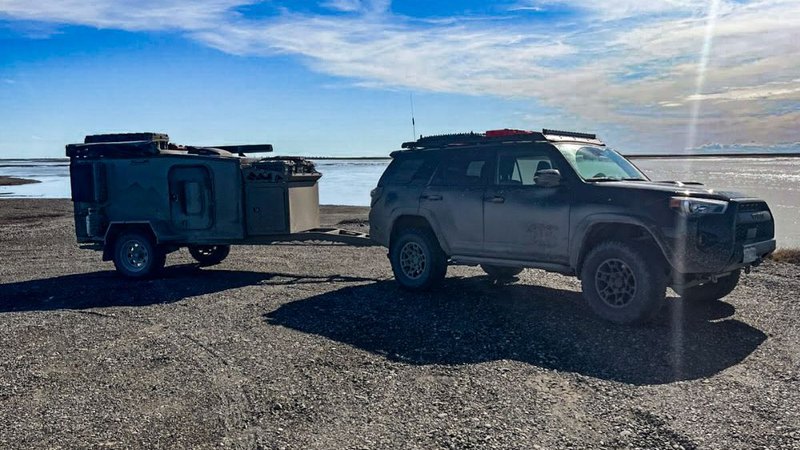
Beyond that, you just don’t know what you don’t know! I’ll never forget: I was backpacking in the Himalayas and really enjoyed the stars in India, so when I returned I started learning about stars and astronomy. I was so excited I packed my heavy star guide on my next summer backpacking trip to the northern Rockies (at the same time that I was cutting weight with a headlamp that was 2 oz. instead of 3 oz.), only to find out that there was no dark during the summer! So you can be prepared as possible and things will still surprise you.
BC: Tell us about the journey!
A: I went from Colorado to Wyoming and Montana, exiting the US at Glacier National Park and into the Canadian Rockies.
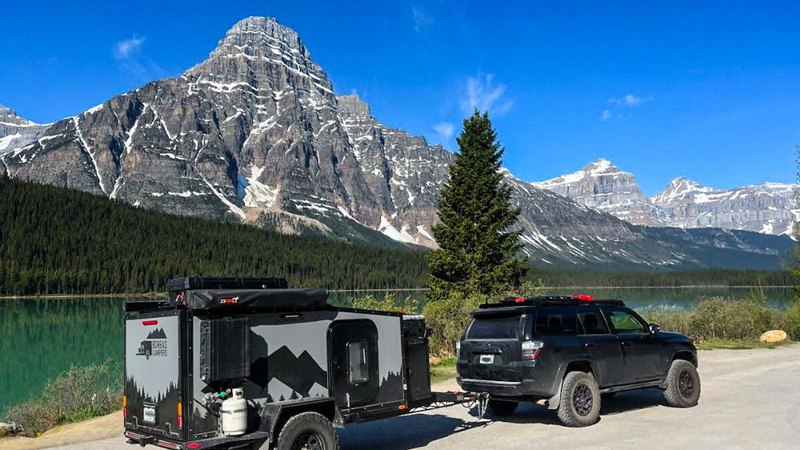
I went to Emerald Blue Lake (filled via melting glaciers) to Calgary, Edmonton, the Continental Divide to Alberta and into the Yukon. The Yukon territory has 35,000 inhabitants, and 25,000 of those live in the main city, White Horse. So most folks beyond the city are Park Rangers or Inuit.
From White Horse I took the Dempster Highway to Dawson City and the Arctic Ocean. This is the road as seen on Discovery Channel’s Ice Road Truckers show and includes a river crossing that is iced over in the winter, but requires a ferry ride during the summer.
I made it to the Arctic Circle and 300 miles later to the Arctic Ocean, where the road ends. There were beautiful mountains all the way up, and incredible animal sightings.
From there I went west to Alaska, the Arctic Ocean at Prudhoe Bay, and back south through most of the national parks in Alaska – which has more national park land than all of the other states combined.
BC: How was the camping?
A: It was incredible. The great thing about the trailer, I knew it could get to the remote places I was hoping to access. There are no major roads in Alaska or the Yukon. Two-track, gravel, mining roads are all that exist and the XT could do all of that. I didn’t have a ground tent to set up, and it didn’t have really high clearance like a van or taller trailer with a roof top tent, so I was able to access some really great spots.
I hiked the Kennecott Glacier, Wrangell-St. Elias, National Park with a guide. The experience was far more comfortable because I could sleep and cook at my Boreas XT base camp. I drove 61 miles on a gravel mining road and off road trail along a former railroad bed from Chitina to McCarthy, Alaska. It is foot travel only from McCarthy to the Kennecott glacier. I was grateful for the ruggedness of the XT as no traditional RVs were making this journey.
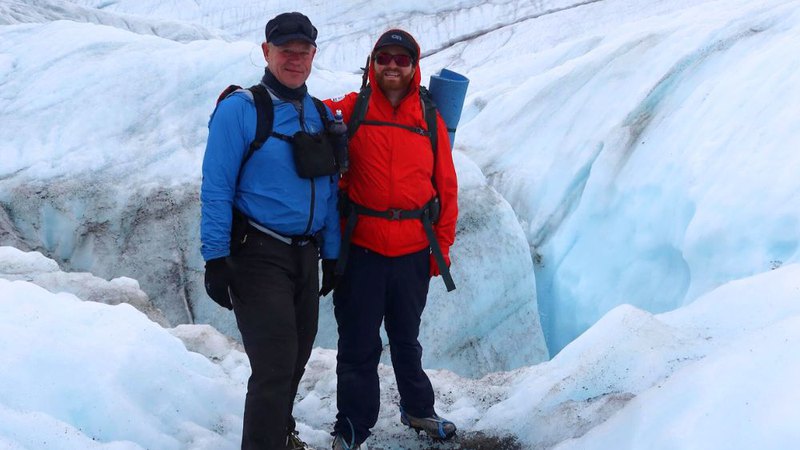
I was able to spot and watch wildlife including bears, musk ox, caribou, elk, big horn sheep and many raptor birds during my overnights and along the route.
It was a great adventure. Long planned, and the trip I had in mind when I purchased the XT. It performed just as I hoped it would.
There was an instance where I was going up a mining road that started getting too rough for me as a solo traveler to feel comfortable so I turned around on this two-track on the side of a mountain. As I was coming back down this classic, grizzled miner in a Carhartt flannel is standing on the side of the road and says to me ‘I’m glad you made it back. I bet it was pretty hard to turn around up there.’ I’m sure he thought I was another tourist he would never see again when he saw me go up!
From my backpacking days I’m used to eating dehydrated meals for weeks at a time, but you basically suffer through it and it can mess with your gut. Having the fridge to store fresh meat and vegetables that I cooked on a skillet over the stove was a game changer. Grocery stores are a week apart up there so having fresh food each day was amazing. For breakfast I mostly kept it simple: I’d grab a yogurt out of the fridge so I could hit the road.
BC: What are some favorite memories from the trip?
A: Making it to the Arctic Circle is one. Other than that it’s the people. There were so many adventurous people along the way. One guy on an adventure bike didn’t want to wait for the ferry to cross the river so he paid a local fisher to tie his bike down to his skiff and take him across. I met incredible people that are just willing to go for it. I crossed paths with a couple also from Colorado that had an adventure camper, and as they’re kind of a magnet for like-minded folks we connected and travelled together for a few days. And people that don’t have an adventure camper want to look and check out the XT all the time, it’s similar to having a puppy ha!
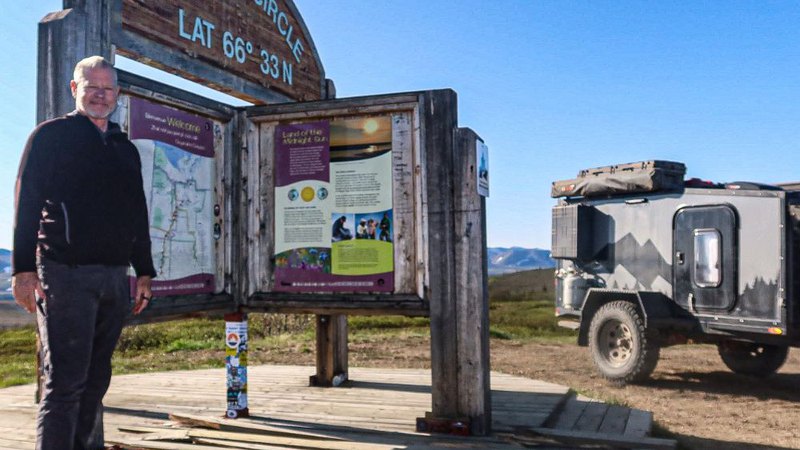
BC: What was your favorite feature of the XT?
A: Practically – the articulating hitch allowed me to go the places I wanted to go. But the favorite creature comfort has to be the sleeping area. I’m 66 years old so crawling onto a 4” mattress, with the heater on, the fan whirring, and the shades drawn was heaven.
I’ve taken the XT with me for a few longer trips: Bridger Pass/the Tetons for 3 weeks, Utah and PNW for a month each. But the XT works great for all the weekend trips too.
When I was looking for a camper I lived in Breckenridge so the origin story of Boreas Campers caught my eye. But beyond that it was built sturdier and came with everything I needed and nothing I didn’t. Some other manufacturers seem more like a Build-A-Bear process where the XT was turnkey.
Thanks so much to Arthur for sharing his experience travelling to the Arctic Circle – we know we’re adding it to our bucket list!